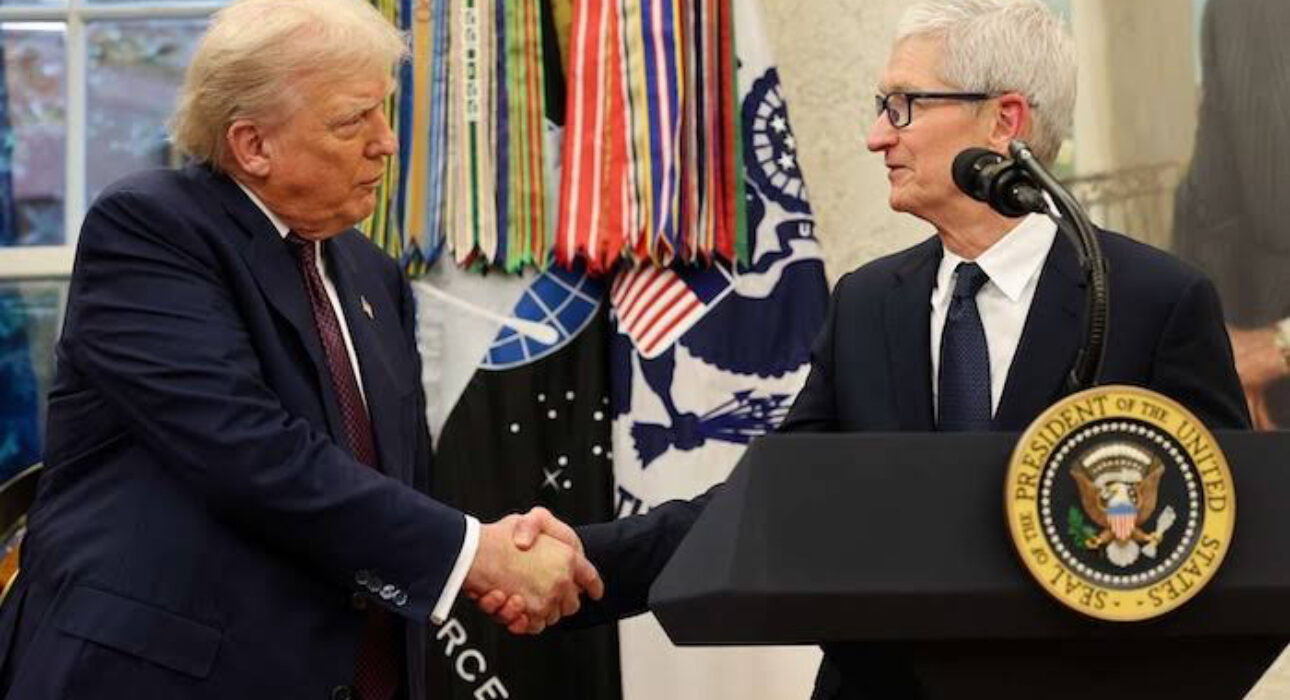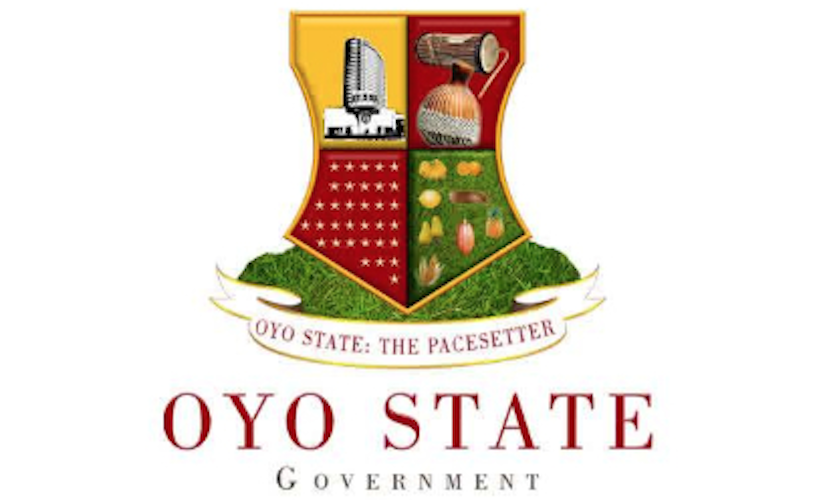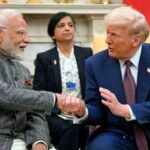Apple Commits $100 Billion to U.S. Expansion Amid Rising Global Tariffs

In a bold response to growing trade tensions and increasing tariffs under the Trump administration, tech giant Apple has announced a massive $100 billion investment to expand its operations within the United States.
The pledge is part of a larger effort by the company to localize its production and shield its supply chain from potential penalties arising from the new wave of tariffs targeting imports from China and India.
This latest commitment brings Apple’s total U.S.-based investment to an estimated $600 billion over a four-year span, making it one of the most significant domestic expansions in American corporate history.
The announcement was made during a joint appearance by Apple executives and former President Donald Trump, who hailed the move as a validation of his economic policies focused on reshoring jobs and strengthening American manufacturing.
The company’s decision comes at a time when Apple, like many global manufacturers, is facing steep tariffs on components and finished products assembled outside the U.S. Recent policy shifts have significantly raised import duties on goods from India—where Apple has been ramping up iPhone production—as well as China, which remains central to its supply chain.
To mitigate the impact, Apple has initiated partnerships with over ten U.S.-based companies. Among the most prominent is a $2.5 billion agreement with Corning to produce high-tech glass for iPhones and Apple Watches in Kentucky. Additional collaborations include deals with Texas Instruments, Applied Materials, and Broadcom to manufacture critical components such as semiconductors and wireless chips within the U.S.
While the investment is expected to create thousands of jobs and reinforce Apple’s domestic research and manufacturing capacity, analysts warn that the move is more strategic than structural. Despite the scale of the investment, full-scale iPhone assembly in the U.S. remains unlikely due to cost, supply chain complexity, and the sheer scale of operations required.
“This is a hedge, not a relocation,” said an analyst from Business Insider. “Apple’s core assembly will still rely heavily on Asia. What they are doing is smartly insulating parts of their business from political and economic risks.”
Still, the move has strong symbolic weight. At a time when global supply chains are under pressure and tech companies are being scrutinized for their reliance on offshore labor, Apple’s investment is seen as an effort to align with American industrial policy while maintaining operational flexibility.
President Trump, who returned to office after the 2024 elections, has made reshoring a key part of his second-term agenda. He described Apple’s move as “a patriotic and powerful gesture,” adding that the company’s expansion would “bring innovation and prosperity home to American workers.”
The investment will fund expanded research and development centers, AI component production, semiconductor fabrication, and workforce training programs across several U.S. states. It also positions Apple favorably in the event of further tariff escalations or trade disputes—particularly as tensions with India and China remain unresolved.
As Apple begins to roll out this domestic expansion, it may also set the tone for how other multinational corporations respond to geopolitical uncertainty. For Apple, the message is clear: adapting to the times means thinking global, but building local.









